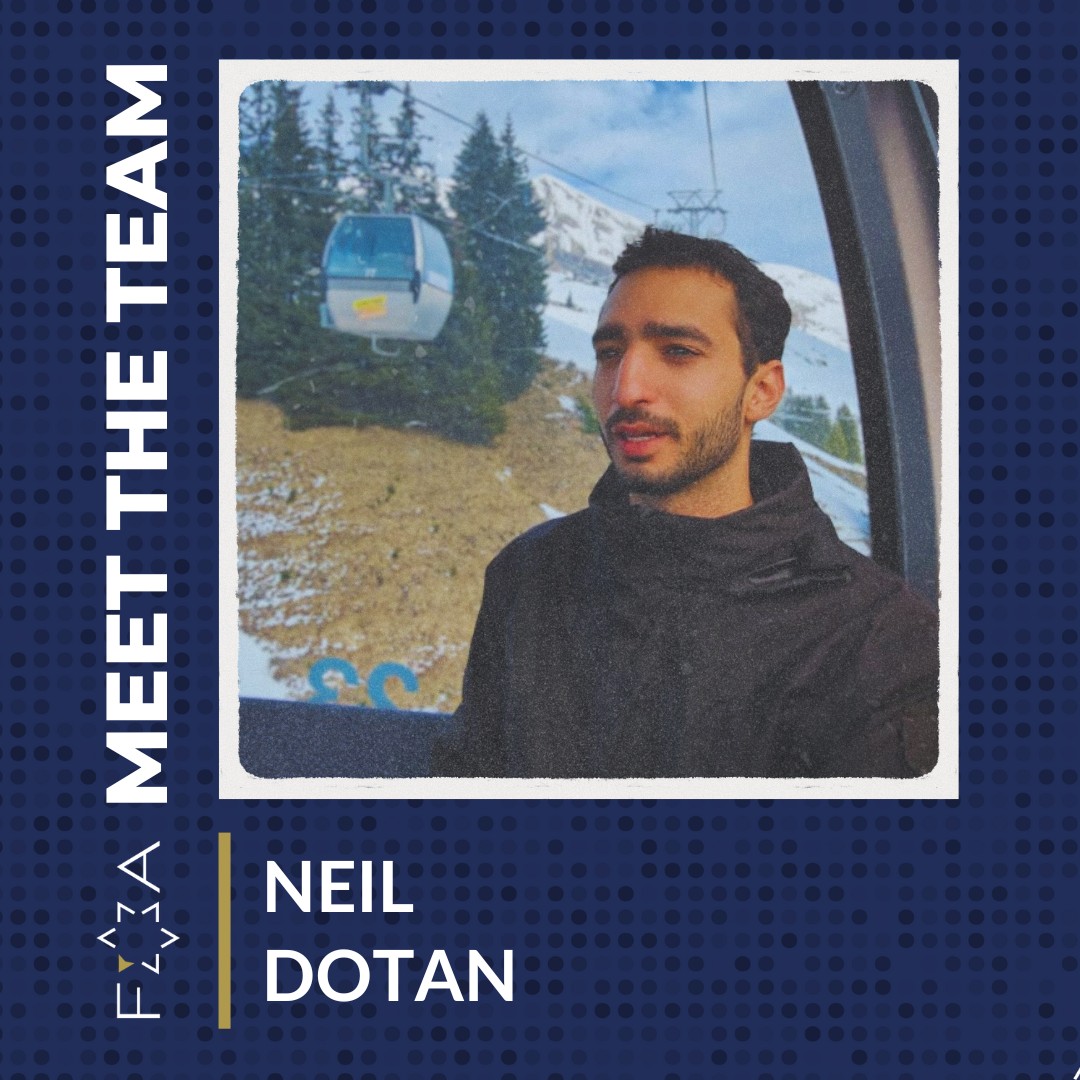Meet Neil Dotan, FOA volunteer since October 2023.
Tell us a bit about yourself – where you’re from, what you do, and something you’re passionate about outside of FOA.
I’m originally from Tel Aviv and currently living in Jerusalem. I’m studying for a bachelor’s degree in physics and mathematics and beginning my master’s in theoretical machine learning at the Hebrew University. I’m also a co-founder of a pre-seed startup. Outside of academics and tech, I’m passionate about trekking and traveling.
How did you first hear about FOA? What inspired you to volunteer with FOA?
After October 7th, like many others, I felt a strong urge to take action. When I saw a message from FOA asking for volunteers to help monitor online content, I joined immediately. Thanks to my background in software, I quickly transitioned from the monitoring team to the development team, where I could contribute more directly to building tools and systems that support FOA’s mission.
Did you encounter online antisemitism before or after you started volunteering?
I hadn’t encountered much personally before volunteering, but being part of FOA opened my eyes to the scale and depth of antisemitism online. In 2024, while studying as an exchange student in Geneva, I witnessed pro-Palestinian protests that sometimes crossed into antisemitic rhetoric, even in academic spaces. That experience made this work feel even more urgent.
What’s your role within FOA, and what kind of tasks or projects have you been involved in?
I lead the AI team. We’re responsible for developing and integrating artificial intelligence tools that help FOA monitor and flag antisemitic content. One of our major projects focused on analyzing antisemitism in TikTok videos. We worked as a small, tight-knit team out of Dan’s office in Tel Aviv – myself, Dan, Emanuel, Gal, and Yuval – and it honestly felt like a tech startup with a mission.
Can you share one experience during your volunteer work that left a strong impression on you – a challenge, a win, or something you learned?
That TikTok project really stood out. It was the first time I experienced such collaborative, fast-paced teamwork on something that combined social impact with cutting-edge tech. It felt like we were building something real, something that mattered – not just talking about change, but engineering it.
In what ways has volunteering with FOA influenced your understanding of antisemitism and how it spreads online? Has anything you’ve learned about online antisemitism surprised you?
Yes, absolutely. I was shocked by how organized and intentional some of the antisemitic activity is – especially how it circulates in subtle forms through popular content and algorithms. It’s not always loud or obvious. Sometimes it’s coded, aesthetic, or deeply embedded.
How do you balance volunteering with your studies, work, or personal life? Any tips for staying committed?
It’s not always easy, especially while studying and working on a startup. What helps me is remembering why I joined FOA – to do something that actually matters. Working with a team that’s passionate and smart makes it feel less like another obligation and more like a shared mission. Also, when we are meeting inface and work together it is really nice experience
What message would you give to someone considering joining FOA as a volunteer?
If you’re thinking about it – just go for it. You’ll be joining a community that’s meaningful, proactive, and full of people who care. And whatever your skill set is, there’s a place for you to make a difference.
What are your hopes for the future in the fight against online antisemitism?
I hope FOA continues to grow and bring in more strong, committed people. I believe that by combining innovative technology with passionate individuals, we can create real impact. My dream is to help build tools that make the internet a safer space—not just for Jews, but for everyone.
Neil’s journey reminds us that everyone has a role to play – from coders to creators.
Want to join the fight? Learn how to volunteer with FOA.

